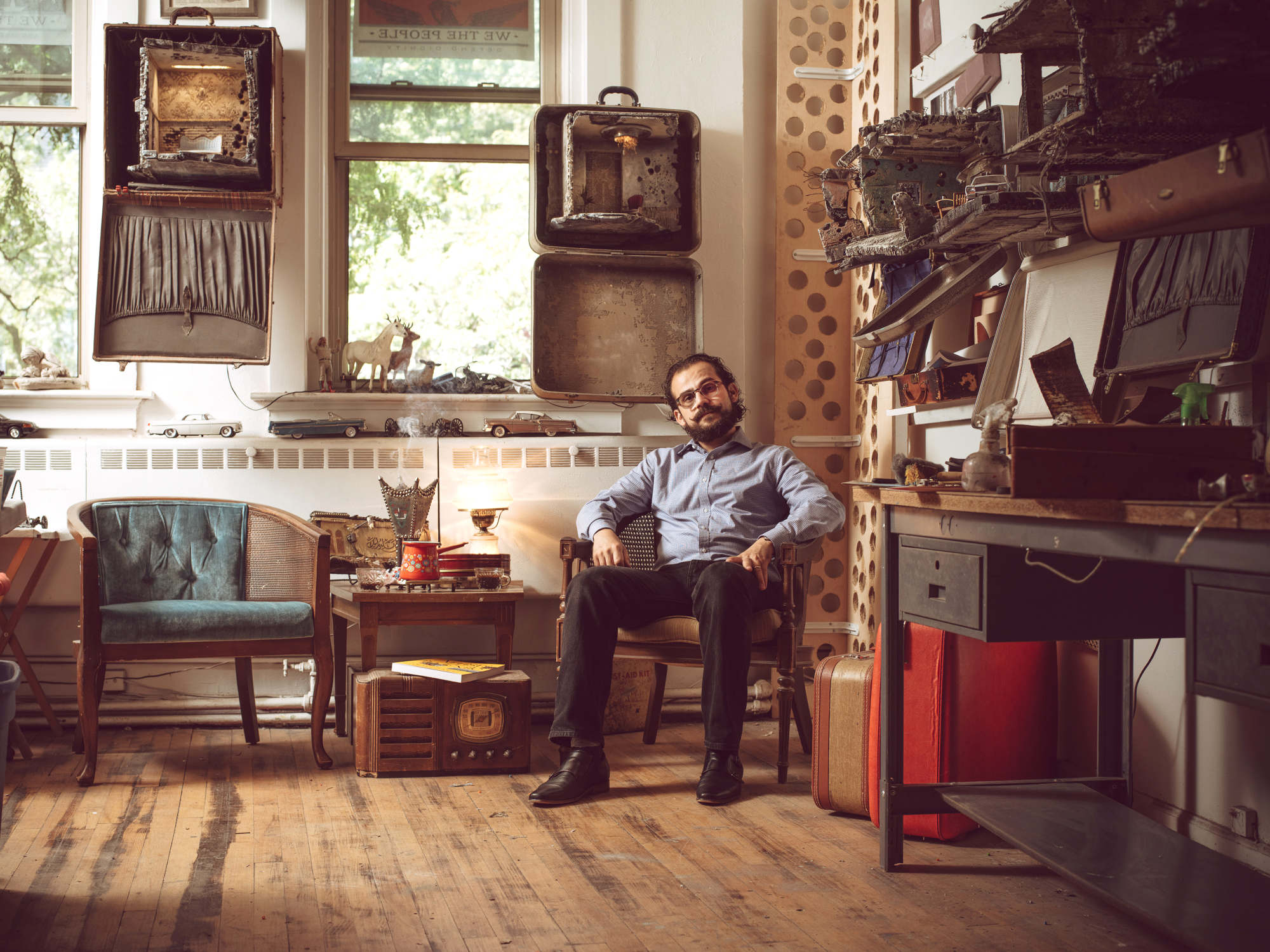Mohamad Hafez is a self-taught artist and registered architect with the American Institute of Architects (AIA). Universities, museums, and galleries have all featured his work. His recent installation UNPACKED: Refugee Baggage tells the stories of what refugees carry with them or have left behind.
For his work, Hafez received the 2018 Connecticut Arts Hero Award for his work addressing the Syrian civil war and the refugee crisis.
In August, Hafez’s work and life as a Syrian native feature in a poignant mini documentary. The short film is one of several touching stories in the fourth season of POV Shorts.
Mohamad Hafez sculpts a war-decimated Syria
Hafez came to the United States to pursue his undergraduate degree. He earned his Bachelor of Architecture from Iowa State University in 2009. That same year, Hafez began to work for the New Haven, Connecticut-based firm Pickard Chilton. He now works as a Project Architect for the same company. He specializes in high-rise corporate, mixed use, and residential developments.
In his studio after work, Hafez sculpts facades and ruined buildings from memory and pairs them with recordings of daily life in Syrian cities. The artist-architect cites dual influences of East and West: his surrealist creations respond to the Syrian War and the “fragility of human life.”
Hafez uses found objects, scrap metal, and paint to orchestrate decimated streetscapes, buildings, and facades. Though there are no people inhabiting his creations, human presence is characteristic. Hafez delicately decorates his sculptures with daily activities including clotheslines made from wire and cloth pieces and flickering lamps. Inscriptions of Quranic verses elicit feelings of both hope and futility.
“My dried plants, my miniature furniture, Christmas ornaments, shells, paints, nails, stones,” Hafez describes his studio. “Here is a radio switch, but what I see in it is an exploded engine.”

Hafez became an and a Silliman College Fellow with Yale University in 2017. He started as an Artist and Interpreter in Residence at the University of Chicago in 2019. He volunteers with the nonprofit organizations Aid All Syrians and The Common Good to assist newly arrived refugee families.
Mohamad Hafez travels to America to study architecture
Hafez was born in Damascus, Syria in 1984 and raised in Saudi Arabia. As a teenager, Hafez wandered the streets of his native city. He often stopped to sketch the architecture and urban landscape.
With his parents’ encouragement, Hafez came to study in the United States. But as a Middle Eastern native in a post-9/11 world, Hafez’s student visa would not let him return during his studies. He soon grew homesick. Because of this, he began creating models of Damascus while working after-hours in his school’s architecture studio.
“I realized if I couldn’t go home, at least I could re-create it in miniature,” he told The New Yorker in an interview.
Before the Syrian war, Hafez’s work was mostly nostalgic. After the start of the war in 2011, Hafez started to process his turmoil with replicas of destroyed and abandoned buildings using discarded objects.
“How do you watch thousands of years bombed out of existence?” he asked. “How do you go on with your life, having your morning coffee, when a bunch of your relatives and friends are under constant bombing? … I come [to the studio] and I let the models do the yelling for me. In that sense, it relieves me… It’s as though I am 3-D printing what’s inside of me.”
PBS releases “A Broken House” in POV Shorts
The national media arts nonprofit American Documentary is releasing the fourth season of its Emmy and Oscar Award-nominated series. The latest POV Shorts season premiered on PBS and became available to stream at POV.org on September 6.
Jimmy Goldblum directs A Broken House. The film featuring Hafez is the first of 13 new nonfiction shorts that span 7 episodes.
“Mohamad Hafez received a one-way ticket to the United States. Missing his homeland, he decided to create a stand-in. A story of love, loss, and creating pathways home,” reads the official description.
The film follows Hafez through the beginning of his artwork, relations with his family, and the personal impact of the Syrian civil war.
Watch the 20-minute film here.



